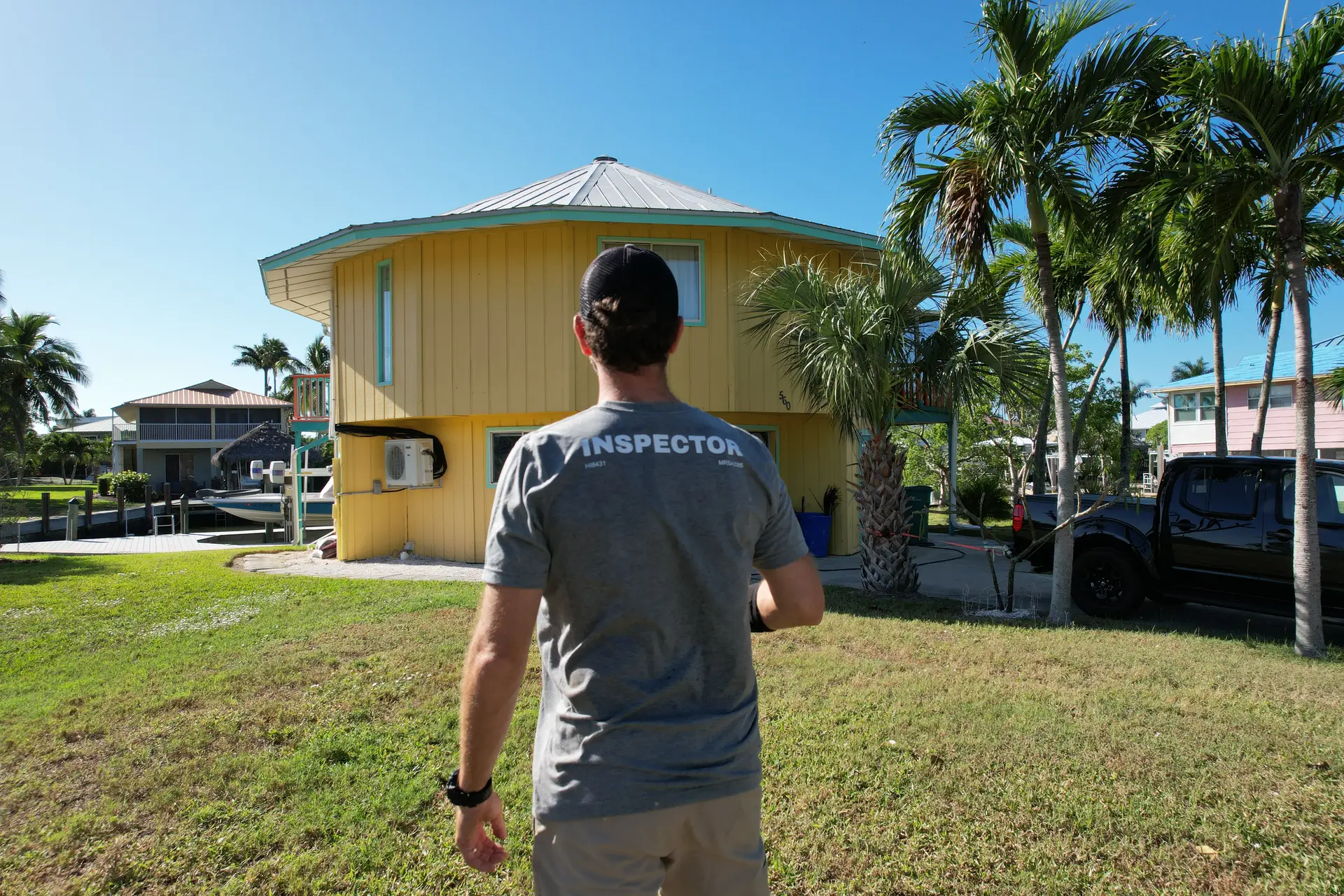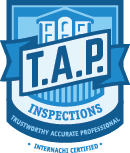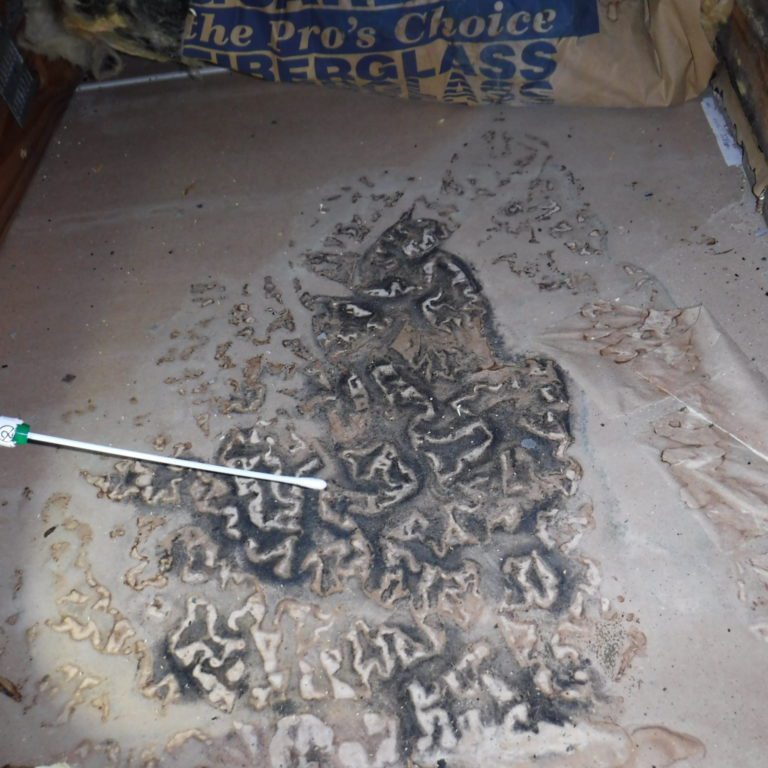Home Inspection Services in
Marco Island
Unlocking the Benefits of a Home Inspection: Essential Steps for Informed Homebuyers
HOW CAN A HOME INSPECTION BENIFIT A HOME BUYER.
A home inspection can greatly benefit a buyer by helping them identify potential issues within the property before making a purchase. With this knowledge in hand, buyers can negotiate more effectively, seeking repairs or price adjustments based on the inspection findings. Additionally, a thorough inspection allows buyers to prepare for future maintenance and upgrades, ensuring a more informed and confident investment.
IDNETIFY
PREPARE
NEGOTIATE
KNOWLEDGE
KEY AREAS COVERED IN A HOME INSPECTION

T.AP INSPECTIONS
YOUR LOCAL MARCO ISLAND INSPECTOR
HOME BUYING INSPECTION 101
INTERIOR AND EXTERIOR ASSESSMENT
Also known as the home purchase inspection, this detailed property assessment examines a variety of exterior and interior components of the home.
Comprehensive and Thorough
Your local T.A.P Inspections home inspector will evaluate the overall condition and future repair needs of more than a dozen home elements.
Documentation of Repair Needs
Our inspectors invest time explaining every step of our home inspection process to answer your questions and document the structure’s immediate and long-term repair and replacement needs.
Complete Home Inspection Report
After the inspection, homeowners receive a summary of our findings and a point-by-point explanation of our work, conveniently stored in in the cloud.
Our Clients
Don’t just take our word for it
Home Inspections:
Essential Insights for Home Buyers
A home inspection is a crucial step in the home buying process, serving as a safeguard for buyers against unexpected repairs and costs. Conducted by a licensed professional, the inspection follows industry standards, ensuring a comprehensive evaluation of a property’s major systems and structural integrity. Typically lasting between two to four hours, the process includes a thorough examination of electrical systems, plumbing, roofing, HVAC, and more. According to the American Society of Home Inspectors (ASHI), this assessment results in a detailed report that outlines both current issues and potential future concerns, giving buyers invaluable information about their prospective home.
Understanding the findings from a home inspection is essential for effective negotiation. If the inspection reveals significant problems—such as outdated wiring, plumbing leaks, or foundational issues—buyers can leverage this information to negotiate repairs or request a reduction in the purchase price. Studies have shown that homes with unresolved inspection issues can see price reductions of 1% to 3% or more. This means that a thorough inspection not only helps you understand the property’s condition but also empowers you to advocate for your financial interests in negotiations.
Moreover, a home inspection can also help buyers plan for future maintenance and upgrades. By identifying potential issues early on, buyers can budget for repairs and prioritize upgrades after the purchase. This foresight can save you from unexpected expenses down the line, making it a wise investment. With the insights gained from a professional inspection, buyers can move forward with confidence, knowing they have made an informed decision about one of the most significant investments of their lives.
FAQ
ask us anything
A home inspection is a comprehensive evaluation of a property’s condition conducted by a certified inspector. The inspection covers major systems such as plumbing, electrical, roofing, and structural components. It’s crucial for buyers because it provides a detailed overview of the home’s current state, helping them make informed decisions. Understanding the property’s condition can prevent future financial surprises and ensures that buyers are fully aware of what they are purchasing.
A home inspection provides crucial insights into the condition of the property, helping buyers avoid costly surprises down the road. It allows you to negotiate repairs or price adjustments and ensures you’re maThe findings from a home inspection can significantly impact negotiations. If the inspector uncovers significant issues—like a leaky roof or outdated wiring—buyers can use this information to negotiate repairs, request price reductions, or seek credits toward repairs before closing. This leverage helps buyers ensure they are not overpaying for a property that requires extensive work, making the home-buying process fairer and more transparent.king a sound investment.
Yes, a home inspection is designed to uncover hidden problems that may not be apparent during a casual viewing. Inspectors are trained to look for signs of issues such as mold, water damage, pest infestations, or structural concerns that could indicate serious problems. Discovering these issues before closing allows buyers to address them proactively, rather than dealing with them after purchase, which can be more costly and stressful.
The cost of a home inspection can vary based on several factors, including the size of the home and its location. Generally, prices range from $300 to $500. While this may seem like an additional expense, it’s an investment that can save buyers thousands of dollars in unexpected repairs and issues in the future. Many buyers find that the peace of mind gained from a thorough inspection is well worth the cost.
During a home inspection, buyers should expect a detailed examination of the property, typically lasting 2 to 3 hours. The inspector will assess key components such as the roof, foundation, HVAC systems, plumbing, and electrical systems. Buyers will receive a comprehensive report outlining the inspector’s findings, which may include photographs and recommendations. It’s also a good opportunity for buyers to ask questions and learn more about the property.
A home inspection can save buyers money by identifying potential issues before the purchase is finalized. By addressing problems early, buyers can avoid costly repairs after moving in. Furthermore, if major issues are discovered, buyers can negotiate a lower purchase price or have the seller make necessary repairs, leading to significant savings in the long run. Ultimately, this proactive approach protects buyers from unexpected financial burdens.
Yes, a home inspection is advisable even for new constructions. While new homes are often built to code, issues can still arise, such as poor workmanship, inadequate installation of systems, or overlooked defects. A home inspection can verify that everything is functioning as it should and meets safety standards. This ensures that buyers receive a quality product and protects their investment from potential future problems.
The best time to schedule a home inspection is after your offer has been accepted but before the closing date. This timeframe allows buyers to assess the property thoroughly without the pressure of closing. It also gives buyers the opportunity to negotiate based on the inspector’s findings. Scheduling the inspection promptly after the offer helps ensure that any issues can be resolved before finalizing the purchase.
Absolutely! Buyers are encouraged to attend the home inspection. Being present allows buyers to see the inspector’s findings firsthand, ask questions, and gain valuable insights about the property. This firsthand experience can help buyers understand potential issues and the overall condition of the home, fostering a better-informed decision-making process.
Choosing the right home inspector is crucial for a successful inspection. Start by seeking recommendations from your real estate agent, friends, or family who have had positive experiences. Look for licensed and certified inspectors with experience in your local market. Check online reviews and testimonials to gauge their reputation. Additionally, inquire about their inspection process and what is included in their report. A qualified inspector will provide a thorough and transparent assessment of the property.




